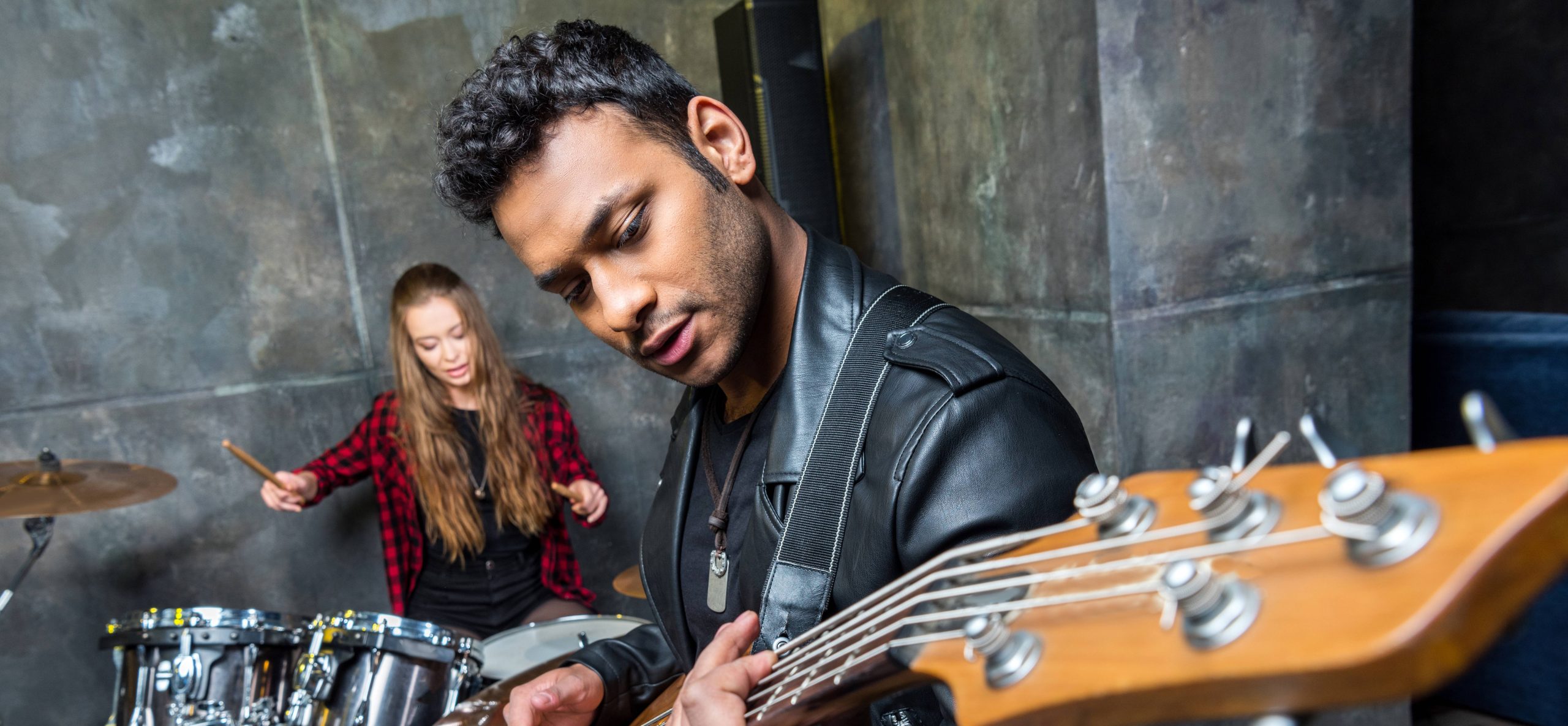With the digital revolution transforming how music is consumed and shared, artists now have an unprecedented opportunity to reach wider audiences. However, this also means navigating a highly competitive and constantly changing landscape. This blog post is designed to help you chart a path through this dynamic terrain, outlining effective strategies to promote your music and brand.
A successful music marketing plan involves more than sporadic social media posts or occasional performances; it requires a comprehensive approach that encompasses understanding your unique brand, identifying your target audience, setting clear goals, and effectively utilizing a range of marketing channels. This guide will walk you through each of these critical steps, providing practical advice and actionable tips.
Whether you’re a solo artist just starting out, a band looking to expand your fanbase, or a seasoned musician adapting to the digital age, a solid marketing plan is your roadmap to success. It aligns your efforts with your career goals, helping you to not only reach but also engage your target audience effectively. Let’s dive in and explore how you can create a marketing plan that turns your artistic vision into a resonating success.
Defining Your Brand and Target Audience
Defining your brand and identifying your target audience are foundational steps in creating a successful music marketing plan. Your brand encapsulates not just your music, but your story, image, values, and the unique qualities that set you apart as an artist. It’s about creating a distinct identity that resonates with a specific group of listeners – your target audience.
Defining Your Brand
Start by reflecting on what defines you as an artist. Consider your musical style, influences, themes you explore in your music, and your overall aesthetic. Think about the emotions and experiences you want to convey through your art. Are you a high-energy pop artist, a soulful singer-songwriter, or a band with a rebellious edge? Your brand should be a true representation of who you are as an artist and what you stand for.
Visual elements such as logos, album art, and your fashion style also contribute to your brand identity. These should align with your musical style and the message you wish to convey. Consistency across your visuals, messaging, and music helps in building a recognizable and cohesive brand.
Identifying Your Target Audience
Understanding who your music appeals to is crucial in tailoring your marketing efforts effectively. Your target audience can be defined by a range of factors including age, gender, geographical location, interests, and even lifestyle. Analyzing your existing fan base, if you have one, can provide valuable insights. Social media analytics, feedback from live shows, and engagement on streaming platforms are useful tools in understanding your audience.
Think about where your audience spends their time both online and offline. What social media platforms do they use? What other artists do they listen to? What kind of events do they attend? Understanding these aspects will help you in crafting marketing messages and strategies that resonate with your audience.
In essence, a clear definition of your brand and a deep understanding of your target audience are crucial in creating an effective music marketing plan. These elements guide your decisions and strategies, ensuring that your marketing efforts are targeted, coherent, and true to your artistic identity.
Setting Clear Objectives and Goals
Setting clear objectives and goals is a critical step in your music marketing plan. Without specific targets, it can be challenging to measure success and determine the effectiveness of your marketing efforts. Goals provide direction and motivation, helping you focus your resources efficiently.
Establishing SMART Goals
Your objectives should follow the SMART criteria: Specific, Measurable, Achievable, Relevant, and Time-bound. This approach ensures that your goals are well-defined and attainable within a reasonable timeframe.
- Specific: Clearly define what you want to achieve. Instead of a vague goal like “increase popularity,” specify what that means for you. It could be “gain 1,000 new followers on Instagram” or “increase Spotify streams by 20%.”
- Measurable: Ensure that your goal can be quantified. This allows you to track progress and know when the goal has been achieved. Utilize tools and metrics relevant to the platform or method you are focusing on.
- Achievable: While it’s good to be ambitious, your goals should be realistic and attainable. Consider your current resources and capabilities when setting your targets.
- Relevant: Your goals should align with your broader career aspirations and artistic vision. They should contribute to your overall growth and success as an artist.
- Time-bound: Assign a timeframe to each goal. Whether it’s three months to release a new single or six months to grow your email subscriber list by 25%, deadlines help in maintaining focus and momentum.
Examples of Music Marketing Goals
Building an Online Presence: Aim to establish a strong online presence by growing your social media following, increasing engagement rates, or enhancing your website’s traffic.
Promoting a Release: Set specific targets for album or single releases, such as a certain number of downloads, streams, or physical sales.
Expanding Fan Base: Focus on increasing your fan base by a certain percentage or reaching new audiences in different geographic locations.
Live Performance Objectives: Aim for a set number of live shows or a specific attendance rate at your gigs.
Media and PR Goals: Target a certain number of features, interviews, or reviews in music blogs, magazines, or podcasts.
Remember, the key to successful goal setting is regular review and adjustment. As you progress, some goals might need to be modified or new ones might emerge. This iterative process ensures that your music marketing plan remains dynamic and responsive to your evolving career needs.
Developing Your Marketing Strategy
Developing a comprehensive marketing strategy is the next pivotal step in your music marketing plan. This strategy should encompass various channels and methods to reach and engage your target audience effectively. A well-rounded approach ensures you can connect with your audience in multiple ways, increasing your visibility and impact.
1. Choosing the Right Marketing Channels
Your choice of marketing channels should align with where your target audience spends their time. This could include:
Social Media Platforms: Platforms like Instagram, Facebook, Twitter, TikTok, and YouTube are powerful for building a fan base, engaging with listeners, and promoting your music and brand. Each platform has its own strengths and audience demographics, so choose those that best align with your target audience.
Streaming Services and Playlists: Platforms like Spotify, Apple Music, and SoundCloud are crucial for music distribution. Getting your music on playlists can significantly increase your reach.
Email Marketing: Building an email list allows for direct communication with your fans. Use newsletters to update fans on new releases, tours, and other news.
Public Relations (PR): This includes getting press coverage, interviews, reviews, and features in music blogs, magazines, and podcasts.
Live Performances: Whether it’s live concerts, tours, or online live-streams, performances are a great way to connect with fans and promote your music.
2. Content Strategy
Your content strategy should involve a mix of promotional, educational, and entertaining content. This could include behind-the-scenes footage, music videos, artist interviews, blog posts, and interactive content like Q&A sessions.
3. Advertising
Paid advertising, whether on social media, search engines, or music platforms, can be an effective way to reach a larger audience. Tailor your ads to target specific demographics that align with your fan base.
4. Partnerships and Collaborations
Collaborating with other artists, brands, or influencers can expand your reach. This might involve collaborative tracks, cross-promotion, or co-hosted events.
5. Analyzing and Adjusting Your Strategy
Regularly analyze the performance of your marketing efforts using analytics tools provided by social platforms and your website. This data will help you understand what’s working and what isn’t, allowing you to adjust your strategy accordingly.
Your marketing strategy should be flexible and adaptable to changes in your audience’s behavior and the digital landscape. By diversifying your approach and staying attuned to your audience’s preferences, you can create a dynamic and effective marketing strategy that propels your music career forward.
Leveraging Social Media
Leveraging social media is a critical component of any modern music marketing strategy. With billions of users worldwide, social media platforms offer unparalleled opportunities to connect with fans, increase visibility, and promote your music. Effectively using these platforms, however, requires more than just sporadic posts; it demands a thoughtful and strategic approach.
First, it’s essential to understand each platform’s unique environment and audience. Platforms like Instagram and TikTok, known for their visual content, are ideal for sharing music videos, behind-the-scenes footage, and visually engaging posts about your music journey. Twitter, with its emphasis on real-time communication, is great for engaging in conversations with your audience and providing quick updates. Facebook, with its diverse user base, can be used for longer-form content, event promotions, and creating fan groups. YouTube remains vital for sharing music videos, live performance recordings, and even vlogs about your music career.
Consistency in your posting schedule is key. Regular updates keep your audience engaged and ensure a steady presence on their feeds. However, it’s not just about quantity; the quality of your content is crucial. Posts should be authentic, engaging, and reflective of your brand. Mixing up your content types – from promotional posts about your latest release to more personal, storytelling posts – helps keep your audience interested and engaged.
Engagement is also a two-way street. Actively responding to comments and messages, participating in trends, and even collaborating with other artists on social media can enhance your presence. This interaction not only boosts your engagement rates but also helps forge a stronger connection with your fans.
Lastly, don’t overlook the power of analytics. Most social media platforms provide insights into your audience demographics, engagement rates, and content performance. Utilizing this data can help you tailor your content strategy, post at optimal times, and understand better what resonates with your audience.
Effectively leveraging social media in your music marketing strategy involves a deep understanding of each platform, consistent and quality content, active engagement with your audience, and data-driven adjustments. By harnessing the power of social media, you can significantly amplify your reach and strengthen your connection with fans.
Building an Online Presence
Building a robust online presence is a fundamental aspect of modern music marketing, extending beyond social media to encompass a comprehensive digital footprint. This presence serves as the virtual face of your music brand, providing fans and industry professionals with a central point to discover and engage with your art.
A professional, well-designed website is the cornerstone of this online presence. It should not only be visually appealing but also user-friendly, offering easy navigation to essential components like your music catalog, biography, tour dates, merchandising store, and contact information. Your website acts as a hub for your digital identity, unifying your online activities and providing a space where fans can delve deeper into your music world.
In addition to your website, your presence on music streaming platforms is crucial. Platforms like Spotify, Apple Music, and Bandcamp are not just channels for distributing your music; they’re also spaces where fans can discover and connect with your work. Ensure your artist profiles are updated, visually consistent with your brand, and contain links to your website and social media channels.
Consistent and engaging content across these platforms, aligned with your brand identity, reinforces your online presence. This might include blog posts, newsletters, vlogs, or podcasts that offer insights into your music, thoughts, and the creative process.
Lastly, SEO (Search Engine Optimization) plays a vital role in enhancing your online visibility. Implementing SEO best practices on your website ensures that fans searching for your music can find you easily.
Building and maintaining a strong online presence requires effort and consistency, but the payoff is significant. It provides a platform to showcase your art, builds credibility, and forms the foundation for a thriving digital community around your music.
Email Marketing and Fan Engagement
Email marketing remains a powerful tool in the digital age for music marketing, offering a direct and personal way to engage with your fan base. Unlike the fleeting nature of social media, emails land directly in your fans’ inboxes, providing a more intimate channel of communication. Effective email marketing can help build a loyal fan base, promote new releases, and increase attendance at shows.
The first step in email marketing is building your email list. This can be done through your website, at live shows, and on social media platforms by encouraging fans to sign up. Offering incentives, such as exclusive content, early access to tickets, or free downloads, can be effective ways to grow your list. It’s important to ensure that you’re compliant with email regulations, like GDPR, by obtaining explicit consent from subscribers.
Once you have your list, the key to successful email marketing is delivering content that is engaging, relevant, and valuable to your audience. This could include updates about new music, behind-the-scenes looks at your creative process, upcoming events, or personal stories and insights. The goal is to provide content that strengthens the connection between you and your fans, making them feel like a part of your musical journey.
Personalization can significantly enhance the effectiveness of your emails. Addressing subscribers by name, segmenting your list to send targeted messages, and tailoring content based on subscribers’ preferences can lead to higher engagement rates. Regular but not overwhelming communication is crucial; too many emails can lead to subscribers tuning out or unsubscribing.
In addition to promotional content, your emails can be a platform for fan engagement. Encouraging feedback, conducting surveys, or hosting contests can increase interaction and deepen the relationship with your audience.
Finally, monitoring the performance of your email campaigns is essential. Tools to track open rates, click-through rates, and conversions can provide insights into what content resonates with your audience and what strategies need adjustment.
Email marketing, when executed thoughtfully, is a powerful way to engage with your fans on a more personal level. It complements other marketing channels and contributes to building a dedicated fan community around your music.
Public Relations and Media Outreach
Public Relations (PR) and media outreach are crucial components of a successful music marketing plan, serving as a bridge between you as an artist and the broader public. Effective PR strategies can significantly enhance your visibility, establish your reputation, and open doors to new opportunities in the industry.
The foundation of solid PR is a compelling press kit. This should include a well-crafted biography that tells your story in an engaging way, high-quality photos, links to your music, videos, and press releases about recent or upcoming projects. It should encapsulate who you are as an artist and what sets you apart. In the digital age, having an electronic press kit (EPK) on your website is essential, making it easy for media professionals to access and download your information.
Media outreach involves identifying and building relationships with journalists, bloggers, podcasters, and influencers who cover music and entertainment. Research and target media outlets that align with your genre and audience. Personalized pitches are more effective than mass emails; they should clearly state why your music or story is relevant to their audience. Be concise, professional, and respectful of their time and interests.
In addition to traditional media, consider the role of digital platforms and influencers in today’s media landscape. Collaborating with music bloggers, YouTubers, or social media influencers can expand your reach to new audiences. These partnerships can take various forms, from interviews and guest appearances to collaborative content creation.
Timing your PR activities is also important. Align your outreach with your music releases, tours, or significant events. This not only ensures that your news is timely and relevant but also maximizes the potential for media coverage.
Remember, PR is not just about getting your name out there; it’s about building a narrative around your music career. Consistent and strategic PR efforts can help you establish a strong brand presence, garner media attention, and deepen your connection with your audience. As with all aspects of music marketing, persistence and building genuine relationships are key to successful PR and media outreach.
Live Performances and Tours
Live performances and tours are not only pivotal for artist growth and fan engagement, but they also serve as powerful marketing tools. When executed well, they can significantly enhance your brand, attract new fans, and deepen your connection with existing ones. In the context of a music marketing plan, leveraging live performances and tours is about more than just the music; it’s about creating a memorable experience that resonates with your audience.
When planning tours or individual shows, strategic thinking is essential. Consider locations where you have a strong fan base or where there’s potential to grow one. Collaborating with local artists or bands can provide mutual benefits, such as shared fanbases and resources. It’s also crucial to promote your shows well in advance through your social media channels, email list, and website. Engaging promotional materials like posters, event pages, and teaser videos can help generate buzz and anticipation.
The live performance itself is an opportunity to showcase your brand and music in a dynamic setting. It’s where the visual and auditory elements of your art come together to create an immersive experience. Think about how the stage setup, lighting, and visuals can reflect your artistic identity. Engaging with the audience during the show, whether through storytelling, audience participation, or unique on-stage antics, can make the experience more personal and memorable.
Merchandise sales at live events are also a key aspect of tour marketing. Offering a range of merchandise, from apparel to physical copies of your music, provides fans with tangible memories of the experience and supports your brand.
Post-performance, engage with your audience online. Share photos or videos from the show, and encourage fans to post their own with a custom hashtag. This not only extends the life of the performance but also helps in building a community around your music.
Integrating live performances and tours into your music marketing plan offers numerous benefits. They provide a platform to bring your music to life, strengthen your fan base, and create memorable experiences that reinforce your brand and artistic vision.
Analyzing and Adapting Your Plan
Analyzing and adapting your music marketing plan is a crucial ongoing process. In today’s rapidly changing music industry, what works today might not be as effective tomorrow. Regular analysis allows you to understand the impact of your strategies and make informed decisions about future directions.
Start by setting up a system to track key metrics related to your goals. This might include website traffic, social media engagement, streaming numbers, email open rates, or ticket sales. Many platforms offer analytics tools that provide insights into these metrics. Use this data to evaluate the success of your marketing activities. Are your social media posts driving traffic to your website? Are your email campaigns leading to increased engagement or sales? Understanding these patterns is crucial for assessing the effectiveness of your strategies.
Be open to experimenting and trying new approaches. If certain tactics aren’t yielding the desired results, don’t be afraid to pivot and try something different. The digital landscape is always evolving, with new platforms and trends emerging regularly. Staying adaptable and open to experimentation can help you stay ahead.
Regularly review and update your marketing plan. As your music career evolves, so too will your goals and strategies. An annual review is a good practice, but also be prepared to make adjustments as needed throughout the year.
The key to a successful music marketing plan is not just in its creation but in its ongoing adaptation and evolution. By regularly analyzing your efforts and being willing to adapt, you can ensure your marketing strategies remain effective and aligned with your artistic goals.
To Sum It Up
To sum up, creating a successful music marketing plan is a comprehensive and dynamic process that requires careful planning, execution, and constant refinement. It begins with defining your unique brand and understanding your target audience, which sets the tone for all your marketing efforts. Clear objectives and goals provide direction and measurable outcomes, ensuring your strategies are focused and effective.
Your marketing strategy should be multi-faceted, encompassing various channels and methods. Leveraging social media effectively is essential in today’s digital landscape, offering a direct way to engage with fans and share your music and story. Building a strong online presence through a professional website and presence on streaming platforms forms the backbone of your digital identity, while email marketing allows for more personal and direct communication with your audience.
Public relations and media outreach are key to gaining wider exposure and establishing your reputation in the industry. Utilizing live performances and tours as marketing tools can not only boost your brand but also create lasting connections with your audience. Merchandise sales and fan interactions during these events further solidify your presence and fan base.
However, the work doesn’t stop with implementation. Regular analysis of your marketing efforts is crucial to understand their effectiveness. This data-driven approach allows you to adapt your strategies, keeping them aligned with your evolving career and the changing digital landscape.
A well-crafted music marketing plan is an integral part of a successful music career. It requires a blend of creativity, strategic planning, and adaptability. By understanding your brand, engaging with your audience through various channels, and continuously refining your approach based on feedback and analysis, you can build a strong presence in the music industry and connect deeply with your fans. Remember, the ultimate goal of your marketing plan is to share your music with the world and grow your career in a way that’s true to your artistic vision.




